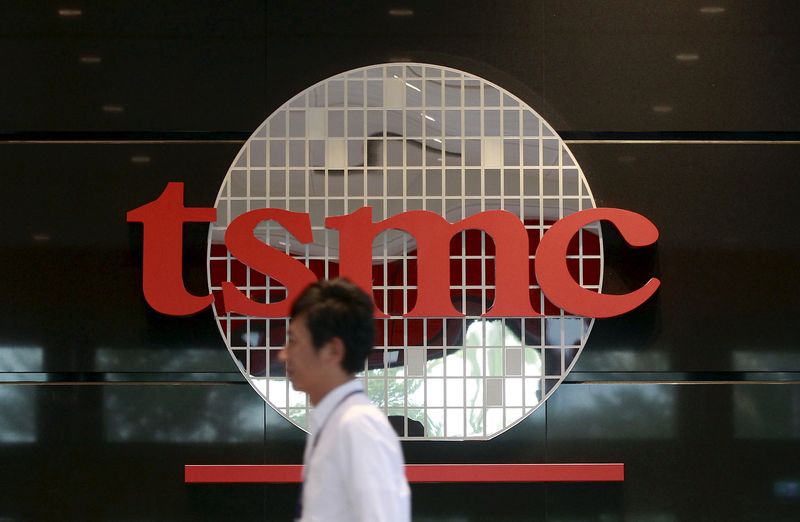Investing.com-- Taiwan Semiconductor Manufacturing Co, or TSMC, saw a stellar spike in its valuation over the past year, as the world’s largest contract chipmaker rode a wave of increased demand from the artificial intelligence industry.
But in terms of valuation, TSMC’s American Depository Receipts (NYSE:TSM) (ADRs) were trading at a substantial premium to the chipmaker’s Taiwan shares (TW:2330). TSMC’s ADRs rose to $172.60 on Tuesday, while the firm’s Taiwan shares traded around T$953 ($29) on Wednesday.
Goldman Sachs (NYSE:GS) analysts said the premium was largely due to the difference in investor bases between American and Taiwanese capital markets. They also flagged regulatory difficulties in converting TSMC’s ordinary shares into ADRs.
GS expects a potential widening in the ADR premium on the back of positive growth from AI, and said that selling the premium ADRs to buy discounted ordinary shares may not yield immediate profits. TSMC is also vulnerable to profit-taking after doubling in value over the past year.
But optimism over AI saw institutional investors substantially increase their holdings in TSMC, which GS said indicated institutional “crowdedness” in the stock.
GS said that continued outperformance in TSMC could pressure some funds to reduce their positions in the stock due to concerns over too much concentration towards one stock. While this could lead fund managers to seek alternatives to TSMC among other tech stocks, the brokerage warned that “investing in the broader tech sector may be less attractive due to its weaker performance relative to TSMC.”
GS flagged 20 Taiwanese tech stocks which could help diversify beyond TSMC, with top picks including Hon Hai Precision Industry Co Ltd (TW:2317), or Foxconn (SS:601138), MediaTek Inc (TW:2454), ASE Industrial Holding Co Ltd (TW:3711) and United Microelectronics Corporation (TW:2303).
Hype over AI, following the launch of generative AI tools such as OpenAI’s ChatGPT, was a key driver of tech stocks over the past year. TSMC saw an earnings boost from the trend as chip demand improved.
But the firm has still warned that AI may not be sufficient in offsetting a broader decline in chip demand, especially as consumer electronics demand weakens amid easing global growth.
